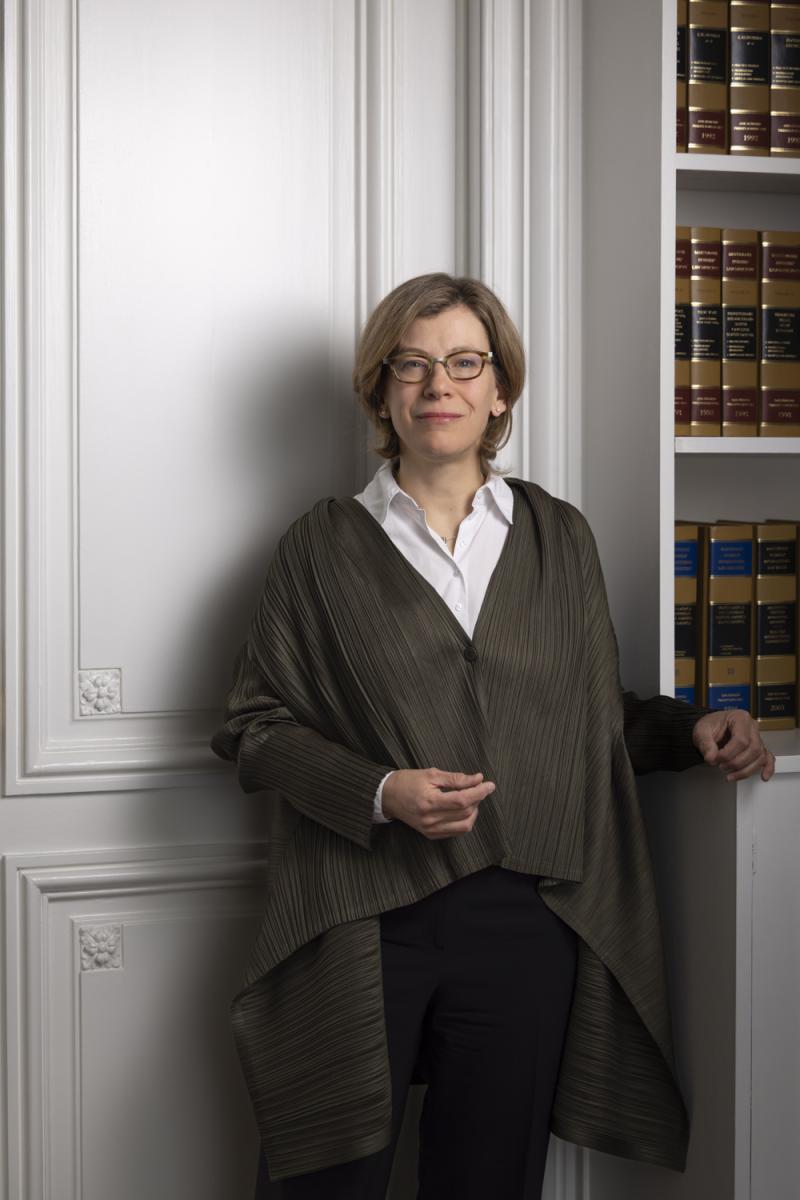
October 20, 2022Newsletter
Newsletter #3 10/2022 The inheritance law reform - what will change as of 1 January 2023?
Philippe Frésard and Philip Laternser explore the upcoming changes in the new inheritance reforms and analyse how this will affect individuals.
Overview: On 1 January 2023, the first stage of the inheritance law reform - the so-called "political stage" - will enter into force (hereinafter referred to as the "inheritance law reform"). This newsletter provides an overview of upcoming changes which can be divided in mainly six topics. The "pension for de facto life partners" initially considered as part of the reform was deleted without replacement during the parliamentary consultations. To facilitate readability, the language forms male, female and diverse are not used simultaneously. All references to persons apply equally to all genders. First topic: Changes in compulsory portions Depending on the set of facts of the case, Swiss inheritance law provides that a portion of the legal share in the estate of certain heirs cannot be withdrawn from such heir - the so-called compulsory portion. As part of the inheritance law reform, the previously applicable compulsory portion of the parents will be abolished without replacement. As of 1 January 2023, only the descendants and the surviving spouse/registered partner will be entitled to a compulsory portion (Art. 470 para. 1 new CC). For descendants, the compulsory portion will be ½ instead of (currently) ¾ of the statutory inheritance share. For spouses, the compulsory portion will remain ½ of the statutory inheritance share (Art. 471 new CC). This means that a testator will be able to dispose freely of half of the assets of the estate.
In connection with the reduction of the compulsory portions for the descendants, Art. 473 CC is also amended. According to Art. 473 CC, testators may today allocate e.g. ¼ of their estate to their surviving spouse and ¾ of the estate to their common descendants, whereby the share of the descendants may be encumbered with an usufruct in favour of the surviving spouse. The inheritance law reform extends the spouses' freedom by increasing the disposable portion which the spouses can allocate to each other in addition to the usufruct from ¼ to ½ (Art. 473 para 2 new CC). The new compulsory portions will apply to existing wills and inheritance contracts if the testator dies after 31 December 2022 (principle of date of death pursuant to Art. 16 para. 3 Final Title CC). If for example the will or inheritance contract explicitly states a former-law compulsory portion for descendants of ¾ of the statutory inheritance share, it will be a question of interpretation whether the testator’s intention was that the person concerned should receive as little as possible (and thus only the new compulsory portion) or whether the person should receive the share actually stated. Therefore, previous wills and inheritance contracts should be reviewed to make sure that they still correspond to the intention of the parties in view of the inheritance law reform or, if not, whether they need to be adapted. Second topic: Elimination of uncertainties regarding the reduction objects and the reduction order In case of infringement of the compulsory portion by dispositions upon death or inter vivos dispositions by the testator, the affected heir may demand that the disposition be reduced or reversed to the extent necessary so that the compulsory portion be restored or "replenished". This process is called "reduction" (cf. Art. 522 ff. CC). With the new wording of Art. 532 of the Swiss Civil Code, the inheritance law reform eliminates uncertainties regarding dispositions which can be reduced and in which order they are to be reduced. Thus, Art. 532, para. 1 new CC now expressly mentions that not only dispositions on account of death (e.g. a legacy) or inter vivos dispositions (e.g. a gift) but also acquisitions by way of legal succession - in the first place - can be reduced if compulsory portions have been infringed (a reduction of the legal succession can be considered, for example, if the testator ordered the legal succession and at the same time bequeaths legacies infringing the compulsory portion). Furthermore, Art. 532 para. 2 new CC explicitly includes marital agreement benefits among inter vivos dispositions, thus clarifying the doctrinal dispute as to whether marital agreement benefits are inter vivos dispositions or dispositions on account of death. Until now, this doctrinal dispute was relevant as reduction would apply to dispositions on account of death prior to inter vivos dispositions. The classification of marital agreement benefits as inter vivos dispositions thus protects the surviving spouse as the latter will only be reduced in the third position in the event of an infringement of the compulsory portion. Third topic: Impact of divorce on inheritance law Previously, the spouse's loss of inheritance share and compulsory portion did not occur until the divorce decree became formally final (Art. 120 para. 2 CC). With the inheritance law reform the surviving spouse loses protection of his or her compulsory portion if divorce proceedings are pending at the time of the deceased's death and these divorce proceedings were initiated at the joint request of both spouses (Art. 111 CC) or if the spouses have lived apart for at least two years (Art. 472 para. 1 new CC). But beware: In case of pending divorce proceedings, the claim to the compulsory portion is extinguished, not the statutory right of inheritance. This means that the statutory right of inheritance must be excluded by means of a testamentary disposition - e.g. by a will. In addition, all claims arising from wills and inheritance contracts (Art. 120, para. 3 new CC), marital agreement benefits in the case of participation in acquired property (Art. 217, para. 2, new CC) and marital agreement benefits in the case of community of property (Art. 241, para. 4, new CC) lapse with pending divorce proceedings, unless otherwise agreed or decreed. Fourth topic: Marital agreement benefits not included in the calculation of compulsory portions Spouses who wish to benefit one another as much as possible on their death and are subject to the matrimonial property regime of participation in acquired property can allocate the surplus of acquired property of both spouses to each other by marriage contract (Art. 216 para. 1 CC; herein referred to as the "marital agreement benefit"). Consequently, the surviving spouse will receive upon death of the first spouse all acquired property of the spouses – including most importantly savings from their employments. Such agreements do not have to comply with compulsory portions of common descendants (Art. 216 para. 2 CC), which is why they are widespread in practice. A dispute existed until now regarding the interpretation to be given to Art. 216 para. 1 CC, i.e. whether the marital agreement benefit was not to be taken into account for the calculation of the compulsory portions of the common descendants (contrary to those of the non-common descendants) (interpretation 1) or whether the marital agreement benefit was to be taken into account for the calculation of the compulsory portions of all descendants, but the common descendants would have no claim to reduce or "attack" the marital agreement benefit (contrary to the non-common descendants) (interpretation 2). Interpretation 2 tends to lead to an infringement of the compulsory portions of common descendants, which they can then correct to the detriment of the surviving spouse via individual property of the deceased (i.e. property brought into the marriage or acquired since then by inheritance or gifts). For this reason, Art. 216 para. 2 new CC expressly stipulates that the marital agreement benefit is not included in the calculation of the compulsory portions of the surviving spouse, the common children and their descendants. Through this, the legislator intends to meet the need for the testator to be in a position to provide the maximum benefit for the surviving spouse. Fifth topic: Prohibition of disposition after conclusion of an inheritance contract According to the current case law of the Federal Supreme Court, gifts are permitted after the conclusion of an inheritance contract, unless the inheritance contract provides otherwise and the testator obviously intends to undermine his obligations under the inheritance contract or to harm the beneficiary of the inheritance contract (BGE 140 III 193). The Federal Supreme Court thus established a fundamental freedom of disposition after the conclusion of an inheritance contract, provided that it does not contain a relevant prohibition or the dispositions are abusive. The aforementioned decision of the Federal Supreme Court was largely rejected by legal authors so that the legislator amended Art. 494 of the Swiss Civil Code to provide a fundamental prohibition of disposition after the conclusion of an inheritance contract unless the inheritance contract contains an express reservation of the right to make gifts. With its new wording, Art. 494 para. 3 new CC states that dispositions upon death and inter vivos dispositions can be attacked if they reduce the benefits under the inheritance contract and have not been reserved in the inheritance contract. Due to the date-of-death principle of Art. 16 para. 3 Final Title CC, the new provision also applies to already existing inheritance contracts and to gifts made since their conclusion if the testator dies after 31 December 2022. Whether gifts and/or dispositions upon death are permitted after the conclusion of an inheritance contract is of considerable practical importance. Therefore, existing inheritance contracts should be examined in the light of the new law to ascertain that they correctly reflect the intention of the parties and, if not, adapt them (if possible). Sixth topic: Clarifications re private restricted retirement pension plans Until now, private restricted pension plans were treated differently from an inheritance law perspective if they were provided by a banking foundation or by an insurance company: While assets from a private restricted retirement pension plan provided by a banking foundation fell into the estate like any other asset, assets from a private restricted retirement pension plan provided by an insurance company did not fall into the estate as beneficiaries had legally a direct claim against the insurance company (Art. 78 VVG). From 1 January 2023, assets from a private restricted retirement pension plan provided by either a banking foundation or an insurance company will not fall into the estate. The beneficiaries of both pension plan solutions now have their own direct claim against the bank or insurance company, so that the assets must be paid out directly to the beneficiaries (Art. 82 para. 4 new BVG). However, any surrender value of the pension insurance as well as the capital in the case of bank savings will be included in the calculation of the compulsory portion and can be reduced if necessary (art. 476 and 529 new CC). Conclusion With regard to the compulsory portions, the inheritance law reform brings more flexibility for the testator. This is particularly welcome to facilitate transmission of family businesses. Additional legislative measures are expected to further facilitate transmission of family businesses within the framework of the second part of the reform which is now pending before the Swiss Parliament. However, disadvantaged heirs may be tempted to pursue to increase the value of their compulsory portions by contesting acts of the testator that have an influence on the calculation of compulsory portions (such as gifts made by the testator during his or her lifetime) or the valuation of assets in the estate. Regarding the testator’s increased freedom of disposition, it must be noted that the inheritance law reform has no influence on inheritance taxes. Depending on the canton, the tax consequences can be severe, particularly in the case of dispositions in favour of non-relatives. In the case of wills and inheritance contracts made before 1 January 2023, where an heir is limited to his or her compulsory portions the wording of such testamentary dispositions must be checked to ascertain that it is clear and corresponds to the intention of the testator. Inheritance contracts must also be verified to ascertain that the intention of the parties is still correctly reflected after the change from a fundamental freedom of disposition to a fundamental prohibition of disposition. The loss of the right to the compulsory portion once divorce proceedings are legally pending serves to avoid tactical delays in the divorce proceedings. After filing for divorce proceedings, however, the spouses may not remain inactive, but must exclude the other spouse's legal right of inheritance by means of a testamentary disposition. In addition, the inheritance law reform provides clarity in questions of interpretation and thus more certainty in particular for the parties to a marriage contract where the aim is to favour as much as possible the surviving spouse. Our specialists will be happy to assist you with your estate planning - including reviewing your previous wills and inheritance contracts. Bern, October 2022 Newsletter Erbsrechtsrevision - DeutschContacts Philippe FrésardTel. +41 58 200 35 66 Fax +41 58 200 35 11 philippe.fresard@kellerhals-carrard.ch  Dr. Philip LaternserTel. +41 58 200 35 53 Fax +41 58 200 35 11 philip.laternser@kellerhals-carrard.ch  PD Dr. Dario AmmannTel. +41 58 200 30 67 Fax +41 58 200 30 11 dario.ammann@kellerhals-carrard.ch  Dr. Marco BalmelliTel. +41 58 200 30 00 Fax +41 58 200 30 11 marco.balmelli@kellerhals-carrard.ch  Nicolas GillardTel. +41582003308 Fax +41582003311 nicolas.gillard@kellerhals-carrard.ch  Ingrid IselinTel. +41 58 200 32 00 Fax +41 58 200 32 11 ingrid.iselin@kellerhals-carrard.ch  Peter SchatzTel. +41 58 200 39 03 peter.schatz@kellerhals-carrard.ch  Prof. Dr. Annette M. SpycherTel. +41 58 200 35 42 Fax +41 58 200 35 11 annette.spycher@kellerhals-carrard.ch  Giovanni StucchiTel. +41 58 200 31 00 Fax +41 58 200 31 11 giovanni.stucchi@kellerhals-carrard.ch |